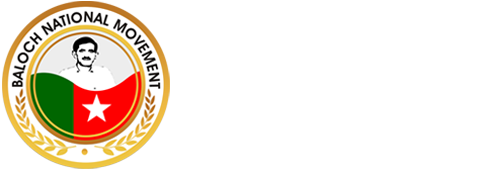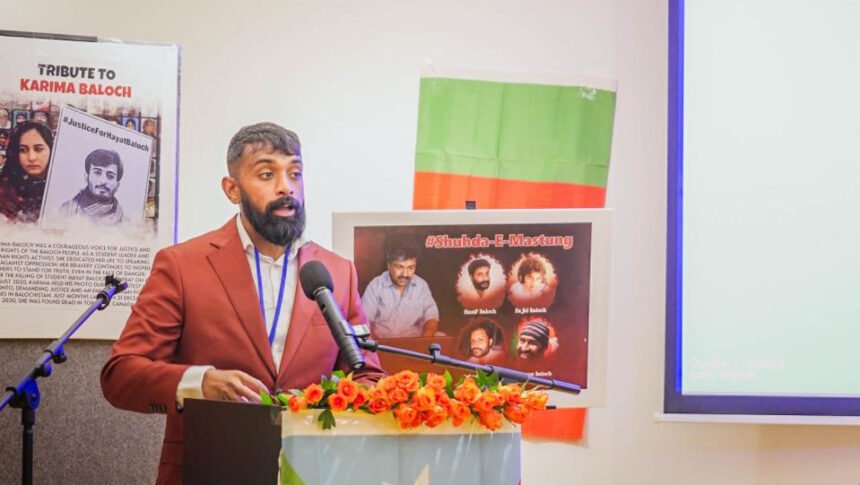Tamil political activist Nivethan Nanthakumar has said that despite long wars, atrocities, and geographical distances, the resolve of the global Tamil community has not weakened, and they are still alive for their identity and purpose today.
He was addressing a seminar organized by the Baloch National Movement (BNM) in Berlin, Germany, on the occasion of ‘Baloch Martyrs’ Day’.
Nivethan Nanthakumar termed the act of paying tribute to the Baloch martyrs as an honor for himself. Drawing parallels between the struggles of the Tamil and Baloch nations, he said that the Tamil nation also remembers its martyrs on November 27th, when their first martyr, Shankar, sacrificed his life in 1982. He stated that the Tamil nation suffered the loss of 30,000 to 40,000 lives during the Eelam Wars.
Tracing the roots of their struggle back to the European colonial era, he said that after the rule of the Portuguese, the Dutch, and then the British, when the island was merged into a single administrative unit, the Tamils were converted into a minority.
“When Ceylon (now Sri Lanka) gained independence, this imbalance persisted — and soon the Sinhalese majority began to oppress the Tamil people.”
Elaborating on the details, he said that immediately after independence, approximately one million Tamils were stripped of their citizenship, Sinhala was declared the sole official language in 1956, and in 1971, university admission for Tamil students was made difficult through discriminatory laws.
Nivethan Nanthakumar clarified that the Tamil people initially raised their voices for their rights through peaceful protests and made several agreements with the government, “but none could ever be implemented.”
In contrast, he said, the Sri Lankan state adopted the path of violence. Large-scale anti-Tamil riots occurred in 1956, 1958, and 1977, and in 1981, the Jaffna Public Library was burned down, destroying invaluable Tamil intellectual heritage.
He stated that until 1976, Tamils were seeking a solution within a united Sri Lanka, but that same year they passed the ‘Vaddukoddai Resolution’, demanding the establishment of an independent ‘Tamil Eelam’.
“In 1983, the anti-Tamil massacre known as ‘Black July’ began… More than 5,000 Tamils were killed in just one week, marking the start of the Eelam War.”
He discussed the different phases of the Eelam Wars, which lasted from 1983 to 2009. He described how India initially helped Tamil guerrilla groups in the context of the Cold War, but later sent troops to disarm them.
He said that the Liberation Tigers of Tamil Eelam (LTTE) established effective control over Tamil areas, and during the 2002 peace talks, the concept of a Tamil homeland was also partially recognized at the international level.
However, mentioning the changing global politics after 9/11, he said that, “with international support, Sri Lanka finally crushed the Tamil Tigers through a full-scale military operation.”
Speaking about the post-war situation, he also referred to China’s growing strategic interest and the long-term lease of the Hambantota Port.
Nivethan Nanthakumar described the final phase of the war as a period of grave human rights violations, stating, “More than 160,000 people were killed or disappeared in just a few months.” He further added that the state confiscated lands in Tamil areas to establish illegal Sinhalese settlements, and justice for war crimes has not been served to this day.
Concluding his address, he mentioned the economic crisis of 2022 and said that despite Sinhalese leftist leaders coming to power, there has been no change in the state’s stance on the Tamil issue.
He praised the role of the Tamil diaspora communities spread across the world, saying that these communities continue to play a vital role in keeping the Tamil identity and struggle alive today.
“Distance and time could not weaken its resolve.”


